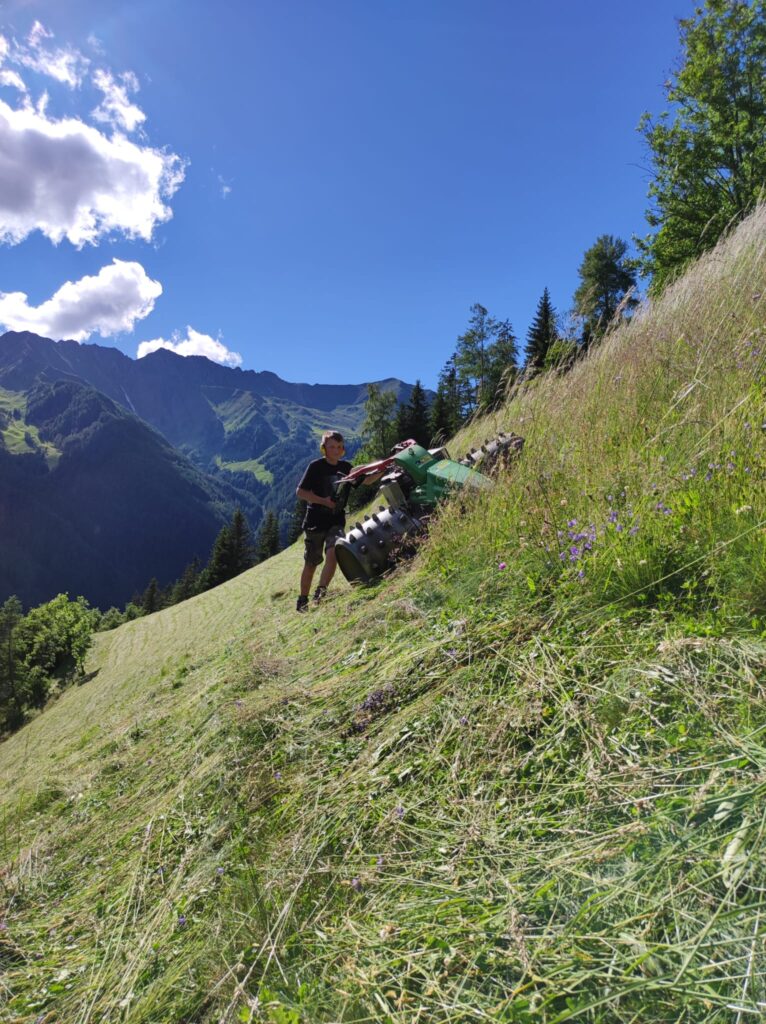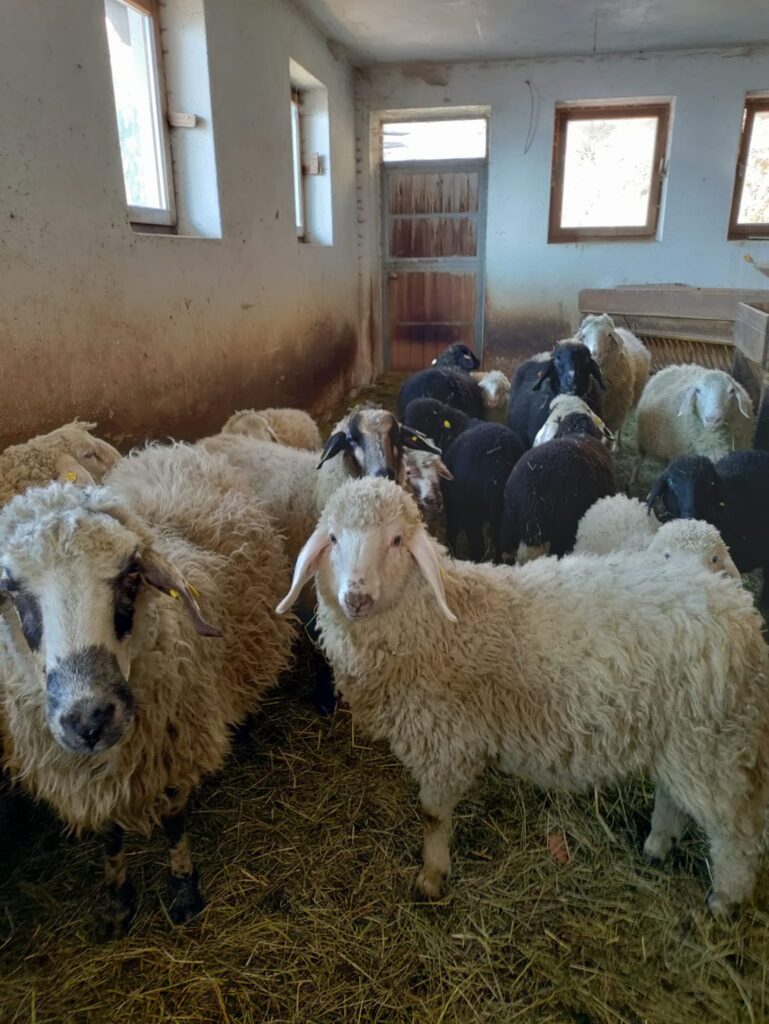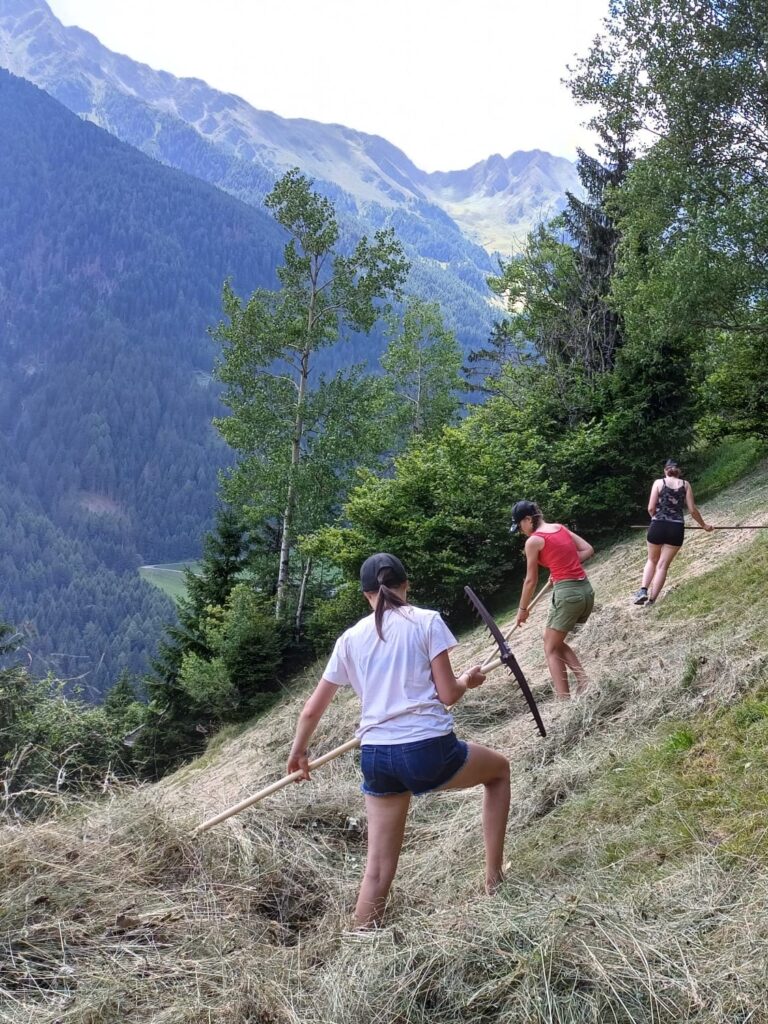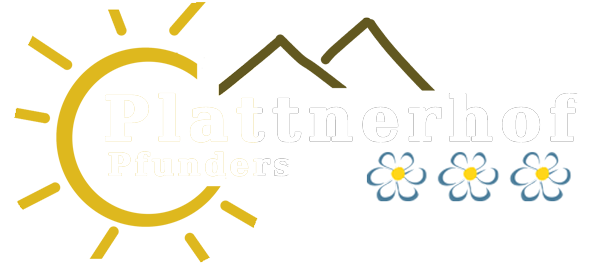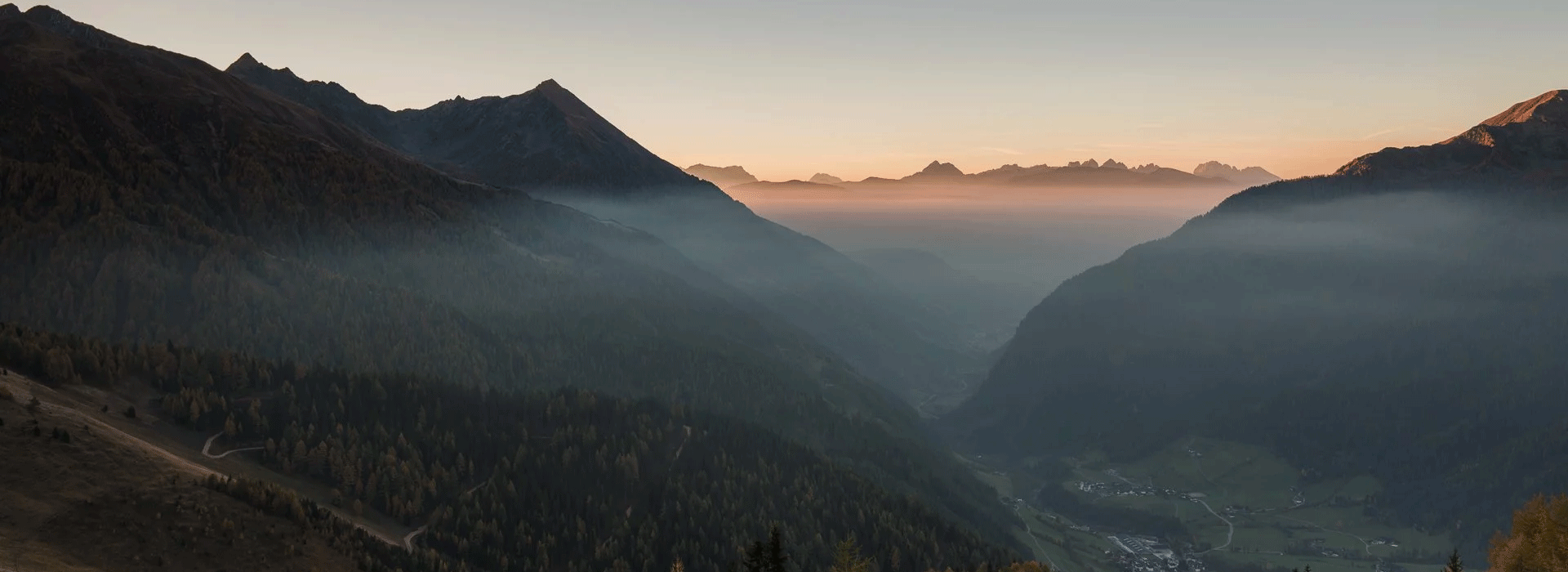
Our history
The Plattnerhof appears in the land register for the first time in 1819. Vinzenz Oberhofer was the owner from 1905. On 21 June 1929, half of the property was transferred to Johann and Elisa Lamprecht.
On 29 March 1960, the Plattnerhof was transferred to Elisabeth Schiner. Later, Martin Huber and his family worked the farm and his wife Maria looked after Elisabeth Schiner until her death at the age of 92. In 1987, childless Elisabeth bequeathed the farm to Maria, Rosina’s mother.
On 26 March 1998, the farm was passed on to Rosina Huber. After her marriage to Franz Josef Ebner in 1998, the farm building was rebuilt and the first tractor was purchased. In 2000, the water source and the entire water pipeline were brought up to date. The residential building was rebuilt in 2003 and the two holiday flats on the upper floor were completed in 2007.
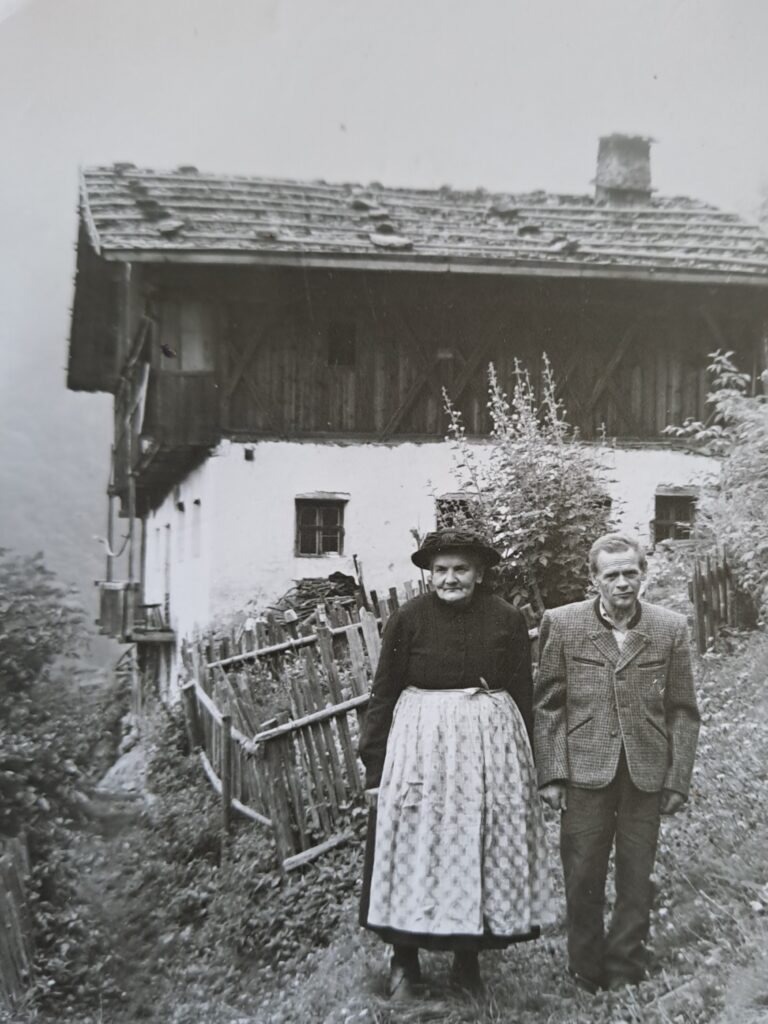


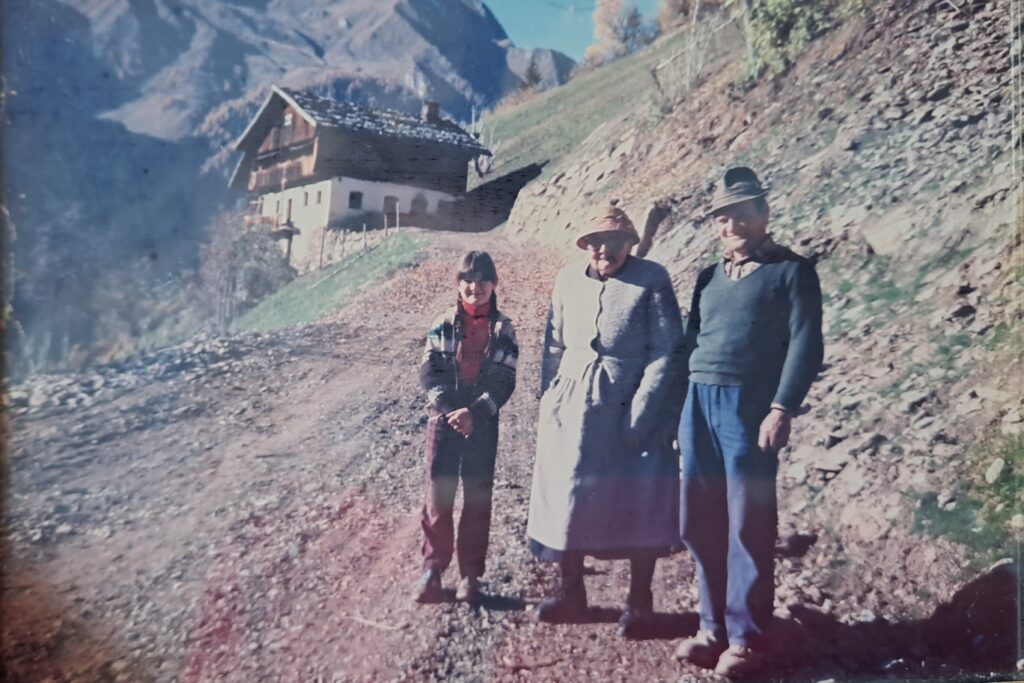
Mountain farming past and present
In the past, the mountain farmer was the one who had what, who determined the economy, assigned the work, had the say in the valley. The farmer was the manager of the farm. In addition, there were the baker, maidservants, farmhands, the Stadler, the Rossa, the Schafa, the Goasa, the Mülla, the Sogila, the Mooda, the Schneida, the shoemaker, the blacksmith, the Machla, the Mischta, the Heibringa, the Kruma, the spinner and the Diorn. They were paid for their accommodation, food and work clothes. There was little money, and not much was needed.
Many a remote mountain meadow was given to a farm labourer or other servant as a wage for mowing. If someone was then allowed to drive a few head of cattle to the farm’s mountain pasture, that was a special honour for the employee. Firewood still had great value even in the Krummholz zone. There was a lot of work and many people on the farm. Everything took time, which you had back then. Every servant was able to contribute their talents. I wonder if there was the kind of stress we have every day today.
There was something to be earned with the wood and the cattle, at least that’s what “Ferl” from Grösslinghof told us. “Heint onne die beschtn Maschinen und tui foscht olls alloane, fodiont isch obo nicht” (Today you have the best machines and I do almost everything on my own, but I don’t earn anything).
Times have changed, industrialisation moved into the country, the farmhands went into other work, the mountain farmer went from being self-sufficient and a producer to a consumer, his own products lost their value, it’s more about preserving the cultural landscape, it’s about support measures to somehow be able to shoulder all the work. The mountain farmer is dependent on and burdened by all the bureaucracy and regulations, not to mention enslaved by laws and regulations. He has to be a part-time farmer, which sounds all very well, but behind it are two jobs that someone has to do!
Despite all this, the mountain farmer has retained his pride and cherishes and cares for the landscape in an exemplary white way for a small wage. When many an inhabitant of the earth, whether tourist or local, expresses his delight at the beautifully maintained landscape, the sustainable management of the farm and the high-quality products of the mountain farmer, this brings honour and respect to the mountain farmer, which he can be pleased about.
